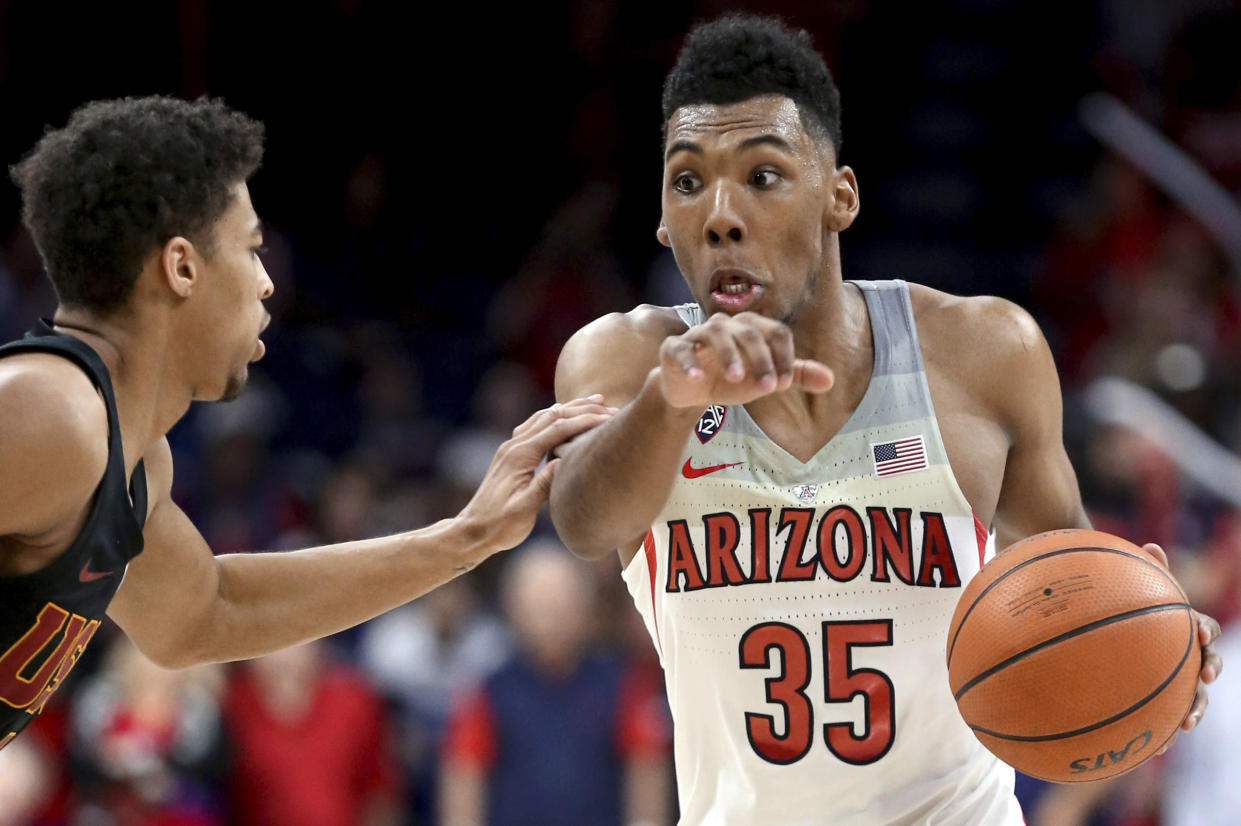Arizona's Allonzo Trier declared ineligible after second failed PED test

In a development that could dramatically affect Arizona’s NCAA tournament chances and his own professional future, Wildcats guard Allonzo Trier has tested positive for a performance-enhancing substance for the second time, his attorney told Yahoo Sports.
Trier, Arizona’s No. 2 scorer and leader in minutes played, has been declared ineligible by the NCAA and will not play Thursday night at Oregon State. His status for the 21-6 Wildcats’ game at Oregon on Saturday also is in doubt.
Arizona is appealing the suspension for the positive test, which the school argues is not a result of renewed PED use, but a residual trace of the steroid Ostarine in Trier’s system from 2016. That’s when Trier first tested positive for PED use, causing him to miss 19 games last season. Trier’s attorney Steve Thompson said Trier original ingestion of Ostarine was inadvertent and came as the result of his stepfather mixing it in a drink for the player.
Trier, who is averaging 19.2 points per game, has been tested multiple times since his NCAA suspension was lifted and the results have been negative, Thompson said. But a random early morning test a few weeks ago, taken when Thompson said Trier was not sufficiently hydrated, produced a positive test for a trace amount of Ostarine.
Thompson said the situation is similar to that of former Georgia offensive lineman Kolton Houston, who tested positive for a PED shortly after enrolling at the school in 2010 and still had traces of it in his system nearly three years later. Houston finally had a clean test in the summer of 2013 and was eligible to play.
“The NCAA’s intransigence on this issue is mind-boggling,” Thompson said. “Allonzo has never been a drug-cheat, and the NCAA found in 2016 that he never took Ostarine intentionally. The experts tell us Ostarine can be stored in fatty tissues for a long time, and tests can be negative but then later be positive as the substance comes out. The medical evidence also shows that the reappearance of a trace amount in his system now creates absolutely zero competitive advantage. We’ve asked the NCAA’s medical panel to review the case – as the rules provide – and the NCAA has refused. This is so frustrating and unnecessary, especially at this time of the season and Allonzo’s career.”
Thompson said the school requested a medical exception from the NCAA to allow Trier to continue playing, but that request was rejected Thursday and he was declared ineligible. Penalty for a second positive PED test would be a one-year suspension from competition.
Trier’s sudden suspension is hardly the only off-court issue Arizona is dealing with. Assistant coach Emanuel “Book” Richardson was fired last month after being implicated in the U.S. Attorney’s investigation of corruption in college basketball. The federal investigation is ongoing.
Arizona released a statement on Trier on Thursday afternoon.
“Earlier today, the University of Arizona was notified that the NCAA has declared Allonzo Trier ineligible. In late January 2018, Allonzo participated in an NCAA student-athlete drug screening. The results of that test, confirmed today, revealed the reappearance of a trace amount of a banned substance. The amount detected was miniscule by scientific standards and appears to be a remnant of a substance, which the NCAA agreed, Allonzo had unknowingly ingested in 2016. The University is appealing the decision and is hopeful that Allonzo will regain his eligibility soon.”

